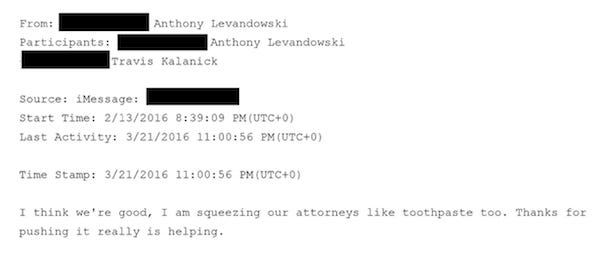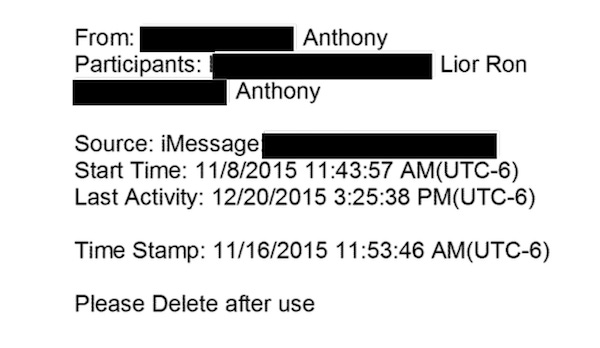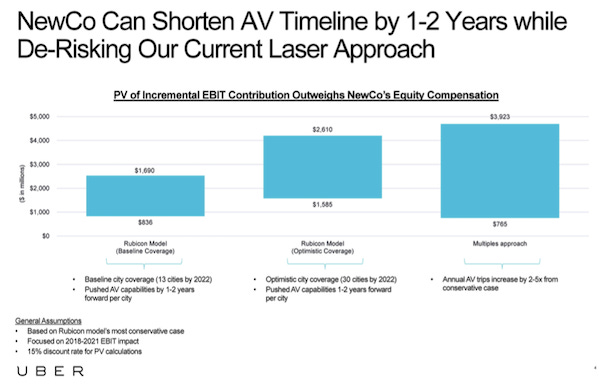Hello and welcome to Oversharing, a newsletter about the proverbial sharing economy.
If you're returning from last week, thanks! If you're new, nice to have you! (Over)share the love and tell your friends to sign up here. This is issue ninety-three, a SPECIAL EDITION for the Uber-Waymo trial in San Francisco, published February 8, 2018.
* * *
This trial is weird. Waymo, the driverless car maker spun out of Google, is suing Uber for allegedly stealing trade secrets. But four days in, trade secrets have hardly come up. Instead Waymo, who as plaintiff gets to call witnesses first, has focused on melodramas. Its lawyers have shown deleted texts and suspicious internal memos. They've hauled in Travis Kalanick for nearly three hours of questioning, asking about everything from his knowledge of the Otto acquisition (he said he didn't read the merger or indemnification agreements) to his video-game habits and use of phrases like "cheat codes." With the literal blessings of Judge William Alsup, they even played Michael Douglas's "Greed Is Good" speech, from the 1987 film Wall Street.
WAYMO: That's a famous speech, isn't it, sir?
KALANICK: It's a movie, it's fake.
WAYMO: Yeah. It's called Wall Street, right?
KALANICK: I think so, yeah.
WAYMO: And it's the "Greed is Good" speech, right?
KALANICK: I don't know the name of it, but I've seen the video before—the movie, I guess.
It makes for great theater. It's not every day you get to see the chastened co-founder and former CEO of a multibillion startup asked to explain his bro-iest phrase (WAYMO: "what you mean by 'jam session'?") or to recall whether he clicked a YouTube link (KALANICK: "I think I would. There's a winky face right there"). From an anthropological perspective, it's an amazing window into the minds of Kalanick and Anthony Levandowski, the former Waymo employee accused of stealing more than 14,000 confidential documents. Like, these people actually exchanged texts where they said:

Squeezing like toothpaste! Also, they used texts to talk about deleting texts:

I mean, come on! I am not a lawyer or a security expert but I feel like infosec 101 is that if you don't want a written record of something, then you never put it into writing in the first place. That is the thing about these tech guys. In theory they are brilliant, but also they can be really dumb. Levandowski was a star engineer at Google but he also frequently reminded people by text to delete all their messages and clearly couldn't spell the word "lose." My personal theory on Levandowski is that he is the world's worst evil mastermind, brought down by hubris and a poorly executed plan to get rich selling a sham startup and maybe some trade secrets to the highest and least scrupulous bidder, Uber. You could make a great comic strip about it.
Theatrics, check. Anthropology, check. The trial also continues to shine light on the inner workings of a startup like Uber, which as a private company, isn't required to disclose much. For example, on the third day, Feb. 7, Waymo called Nina Qi, a former Uber employee who worked on mergers and acquisitions, including Uber's deal to buy Levandowski's driverless trucking company Otto. Qi helped figure out how much Otto might be worth to Uber, in terms of projected revenue acceleration. She crunched data and made charts, and told her bosses of the Otto deal, "The numbers are very compelling."

You might note the text in the bottom left corner, "General Assumptions." In court, Uber's lawyers asked Qi to elaborate on some of those assumptions:
QI: Like, for instance, I had to estimate, you know, the number of cities we were going to launch, when we were going to launch the cities, the number of fully autonomous vehicle trips that we were going to take, how much we were going to charge, how—how it would cost Uber to operate this. At the end of the day, I really did give it my best shot, but it was really just an educated guess.
Oh also, Qi had been working at Uber "maybe a couple weeks" before she was asked to start working on the Otto transaction. Is any of this particularly useful for Waymo's case, insofar as it proves that Levandowski stole and Uber later used, to its unjust enrichment, trade secrets? Probably not. It helps establish that Uber thought Otto was pretty valuable, but we already knew that from the deal price of $680 million. More interesting, if less relevant, is that Uber assigned someone who had been at the company for mere weeks to value a major acquisition, and was apparently quite chill about the long list of assumptions she made to do it. Remember this time next time a startup confidently tells you something about its internal metrics and valuations.
Today the courtroom has calmed down, with Kalanick done testifying and Waymo calling several technical witnesses to discuss whether Levandowski stole and took to Uber those 14,000 files. There was some brief excitement when Benchmark venture capitalist and former Uber board member Bill Gurley took the stand, where he testified in, for this case, record time. Waymo is saving Levandowski, who is expected to take the Fifth, for last. As for how they're doing, the lawyer sitting next to me yesterday, who had come just to watch, was strongly of the opinion that Waymo is doing terribly, and has yet to make a case. It's possible that the meat of the trial will come out in closed-door sessions where actual trade secrets are discussed, but so far we haven't heard much about that at all.
Thanks again for subscribing to Oversharing! If you, in the spirit of the sharing economy, would like to share this newsletter with a friend, you can suggest they sign up here. Follow me on Twitter for more from the trial.



